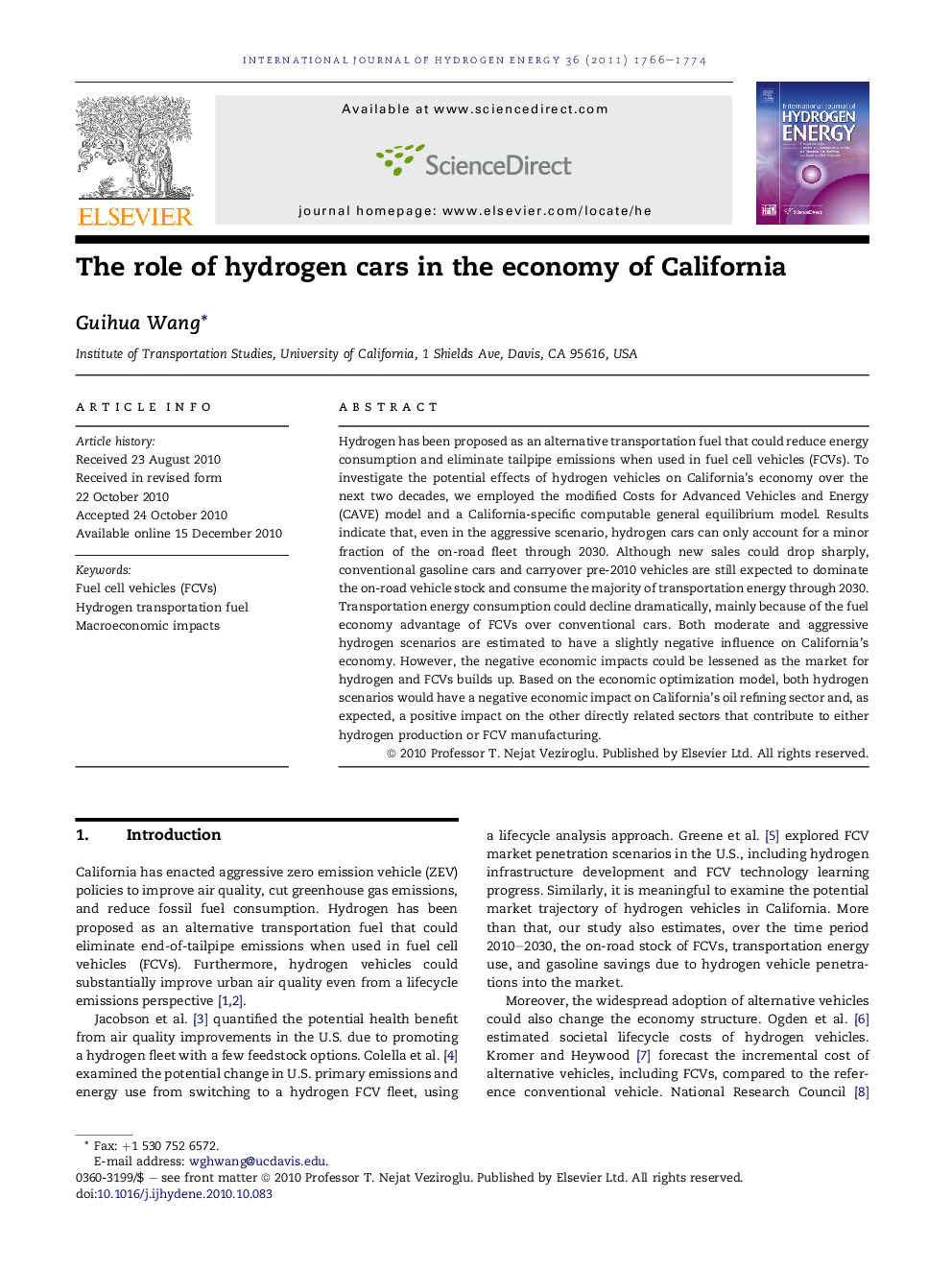| Article ID | Journal | Published Year | Pages | File Type |
|---|---|---|---|---|
| 1272343 | International Journal of Hydrogen Energy | 2011 | 9 Pages |
Hydrogen has been proposed as an alternative transportation fuel that could reduce energy consumption and eliminate tailpipe emissions when used in fuel cell vehicles (FCVs). To investigate the potential effects of hydrogen vehicles on California’s economy over the next two decades, we employed the modified Costs for Advanced Vehicles and Energy (CAVE) model and a California-specific computable general equilibrium model. Results indicate that, even in the aggressive scenario, hydrogen cars can only account for a minor fraction of the on-road fleet through 2030. Although new sales could drop sharply, conventional gasoline cars and carryover pre-2010 vehicles are still expected to dominate the on-road vehicle stock and consume the majority of transportation energy through 2030. Transportation energy consumption could decline dramatically, mainly because of the fuel economy advantage of FCVs over conventional cars. Both moderate and aggressive hydrogen scenarios are estimated to have a slightly negative influence on California’s economy. However, the negative economic impacts could be lessened as the market for hydrogen and FCVs builds up. Based on the economic optimization model, both hydrogen scenarios would have a negative economic impact on California’s oil refining sector and, as expected, a positive impact on the other directly related sectors that contribute to either hydrogen production or FCV manufacturing.
